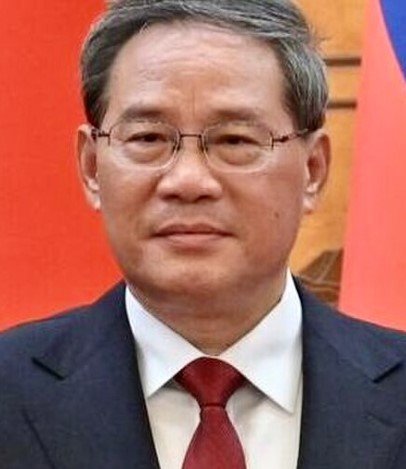Chinese Premier Li Qiang is heading west — first to Brazil for the BRICS summit, then to Egypt — in a two-stop diplomatic swing that underscores Beijing’s sharpened focus on reshaping its relationships across the Global South.
The July visits come at a sensitive moment, with China positioning itself as a power broker in the Middle East, a challenger to Western dominance in global affairs, and a steady hand for developing nations seeking alternatives.
BRICS Gathering Carries Symbolism, but Also Sharp Undercurrents
The 17th BRICS Summit in Rio de Janeiro, from July 5 to 8, is more than another multilateral photo-op. It’s become a geopolitical flashpoint of sorts.
While Chinese officials emphasize trade, development, and cooperation, the event’s underlying current is unmistakably political. BRICS — which originally included Brazil, Russia, India, China, and South Africa — has expanded in both ambition and membership. Countries like Egypt, Ethiopia, Iran, and the UAE have joined the conversation, even if institutional cohesion remains loose.
One familiar face will be missing: Russian President Vladimir Putin. Citing the International Criminal Court’s arrest warrant, the Kremlin confirmed he’ll skip the trip — to avoid placing host Brazil in an awkward legal position.
But China’s message will be loud and clear.
“The BRICS cooperation mechanism is one of the most important platforms for solidarity and cooperation among emerging markets,” Chinese foreign ministry spokeswoman Mao Ning said earlier this week. She called it a “vital force” in building a more multipolar, inclusive world.
Translation? The bloc wants to chip away at Western-led economic structures like the G7, the IMF, and even dollar dominance. And China’s ready to play quarterback.

Egypt Visit a Signal of Long-Term Strategic Intent
After Rio, Premier Li is scheduled to land in Cairo for a two-day state visit from July 9 to 10. It’s his first trip to Egypt since taking office last year, and it marks the highest-profile Chinese visit since President Abdel Fattah el-Sisi began strengthening ties with Beijing a decade ago.
Chinese investment has already poured into Egypt — from infrastructure in the Suez Canal Economic Zone to industrial parks and new capital projects.
But this trip isn’t just about trade.
Li’s visit signals Beijing’s intent to cement itself as a diplomatic partner of choice in a region long dominated by Washington and, increasingly, Russian defense deals.
“Egypt is at the center of the Arab world, geopolitically and culturally,” said an Arab diplomat in Beijing. “If China wants credibility in the region, it needs Cairo onside.”
Beijing Steps Up as Middle East Mediator
Over the past two years, China has taken some unexpected turns in Middle East diplomacy.
In 2023, Beijing pulled off what once seemed improbable: a surprise rapprochement between archrivals Saudi Arabia and Iran. Brokered quietly by Chinese officials, the agreement reopened embassies and calmed proxy tensions that had rippled across Syria, Yemen, and Lebanon.
The move raised eyebrows in Washington and Tel Aviv — and raised Beijing’s profile.
-
It wasn’t just the deal itself. It was the fact that neither the U.S. nor Russia were at the table.
-
The handshake between Saudi and Iranian diplomats in Beijing sent a clear message: China can be more than a trade partner — it can be a dealmaker.
Since then, China has kept nudging its way into conversations about the Israel-Palestine conflict too, though with less success.
That hasn’t stopped it from trying.
In June 2024, Chinese officials proposed a ceasefire framework during the Gaza crisis, urging “calm and restraint from all parties.” It didn’t lead to much, but it showed China’s willingness to be seen as a player.
China’s Investment Diplomacy: Quiet but Relentless
Beyond the grandstanding and peace talks, China’s long game in the Middle East still runs through business.
In Egypt, it’s already one of the largest foreign investors. Chinese state firms are building electric railways, financing solar parks, and developing an industrial city outside Cairo.
A snapshot of Chinese-backed projects in Egypt:
| Sector | Project | Estimated Value |
|---|---|---|
| Infrastructure | Suez Canal industrial park | $1.1 billion |
| Transport | High-speed electric railway lines | $9 billion |
| Energy | Solar and wind power installations | $650 million |
| Urban Development | Egypt’s new administrative capital | $3 billion |
There’s quiet competition here — with Gulf countries, Turkey, and Western powers also jostling for influence. But China’s approach feels different: less press releases, more concrete.
And that’s won it allies.
The Soft Politics of Multipolarity
China’s diplomatic strategy isn’t just about formal alliances or arms deals. It’s playing the long game through soft power and smart timing.
When Beijing talks about “multipolarity,” it’s not always clear what the endgame is. But there’s growing consensus among its diplomats and state media that the U.S.-led unipolar world — with its sanctions regimes and dollar dominance — no longer serves the developing world.
And many leaders across Africa, Latin America, and the Middle East are starting to agree.
“It’s not that they trust China more than the West,” said a former EU ambassador to Egypt. “It’s that they’re tired of lectures. And China doesn’t lecture.”
This narrative — that China brings investment without interference — has become Beijing’s diplomatic currency. And visits like Li’s are the small, steady deposits.
Timing Is Everything in Foreign Policy
Li’s Middle East visit follows a string of tense months.
China has had to manage its support for Palestinian statehood while still maintaining economic ties with Israel. It has taken a less vocal stance than Iran during the Gaza conflicts. At the same time, it hasn’t condemned Tehran either.
This balancing act has its risks.
But Egypt provides a low-drama, high-impact venue — a regional giant that won’t create headlines for the wrong reasons.
Plus, Egypt sits at a crossroads of Chinese interest: Suez Canal logistics, Red Sea trade lanes, Mediterranean access, and African gateway.
